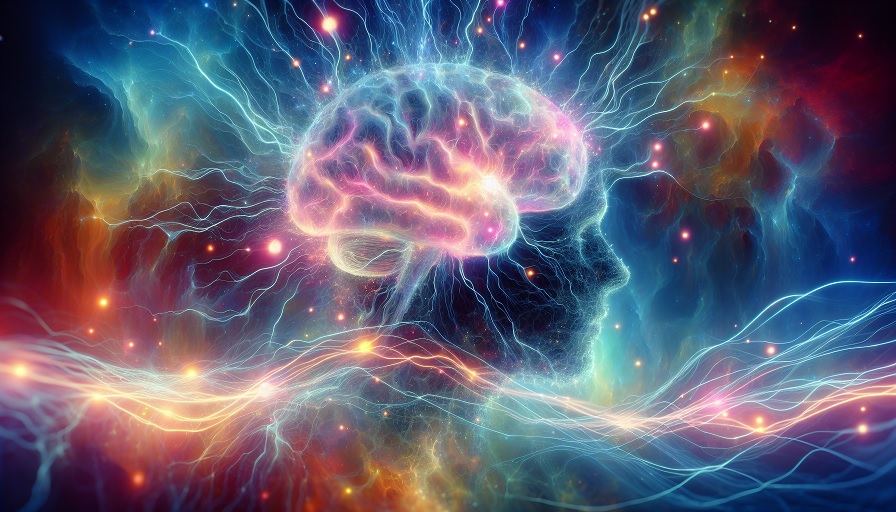
Popular culture often paints the genius as a solitary figure – a brilliant but isolated mind working late into the night, disconnected from ordinary social life. From the reclusive Nikola Tesla to fictional characters like Sherlock Holmes, the image of intellectual isolation runs deep. But is this stereotype accurate? And if so, why might high intelligence be linked to reduced social engagement? Neuroscience, psychology, and sociology together paint a nuanced picture of how intellect and connection interact, revealing both advantages and challenges for highly intelligent individuals.
Contents
The Link Between Intelligence and Social Patterns
Studies on intelligence and social behavior suggest a complicated relationship. Research from the British Journal of Psychology found that people with higher IQs often report lower life satisfaction when they socialize more frequently, compared to those with average intelligence. This doesn’t mean they dislike people – it suggests their brains may process social interactions differently.
Highly intelligent individuals often engage in more abstract thinking and long-term planning, which can make small talk or routine social exchanges feel less stimulating. Over time, this preference for depth over frequency can reduce casual social engagement, potentially leading to perceptions of isolation.
Deep Thinking and Energy Allocation
Every social interaction requires cognitive energy. The brain processes verbal and nonverbal cues, emotional context, and rapid shifts in topic, all while formulating responses. For someone whose mind is constantly working on complex problems or creative projects, these interactions may feel mentally draining.
This doesn’t imply that intelligent people lack social skills – many are highly adept communicators. However, they may be more selective in choosing environments and companions that align with their intellectual and emotional needs.
Neuroscience of Social Stimulation
Neuroimaging studies show that the default mode network (DMN) – a brain network active during introspection – tends to be highly engaged in people who prefer solitary, reflective activities. Those with strong intellectual curiosity often spend extended time in this network, which can make external social stimuli feel like an interruption rather than enrichment.
Interestingly, the DMN is also linked to empathy and perspective-taking, meaning solitude doesn’t necessarily reduce the capacity for understanding others – it may simply change the preferred context for connection.
Creativity, Solitude, and Flow States
Many geniuses report that solitude allows them to enter “flow states” more easily – periods of deep focus where creativity and problem-solving thrive. These states are characterized by a balance between challenge and skill, with minimal distractions. Constant social interaction can fragment this focus, making it harder to sustain innovative thinking.
However, prolonged isolation carries risks, including reduced emotional support and increased stress reactivity. The healthiest geniuses often balance solitary work with targeted social engagement that feels purposeful and fulfilling.
The Social Intelligence Factor
High IQ does not automatically mean high emotional intelligence (EQ). EQ involves recognizing, understanding, and managing one’s own emotions, as well as those of others. People with high EQ tend to navigate relationships more easily, regardless of cognitive ability. In fact, geniuses with strong EQ often use their intelligence to deepen connections, becoming influential leaders or mentors rather than isolated thinkers.
Evolutionary Theories
From an evolutionary perspective, intelligence may have originally evolved to solve complex social problems – like cooperation, negotiation, and alliance-building. However, modern environments allow for intellectual pursuits that don’t require large social groups, making it possible for highly intelligent individuals to thrive with fewer social ties.
One theory suggests that in ancestral environments, being highly intelligent allowed individuals to operate more independently, reducing their reliance on group problem-solving. This could explain why some modern geniuses feel comfortable with minimal social contact.
Nootropics and Social Engagement
Some highly intelligent individuals turn to nootropics to support both focus and social stamina. Compounds that enhance dopamine and acetylcholine activity may boost mental agility and conversational engagement, while adaptogens that reduce cortisol can help ease social anxiety. Although supplements can’t replace genuine social skills, they may help balance the mental demands of deep thinking with the energy needed for meaningful interactions.
Balancing Solitude and Connection
- Schedule intentional social time: Quality over quantity – seek interactions that inspire and stimulate.
- Engage in collaborative projects: Shared goals can bridge intellectual and emotional connection.
- Practice active listening: Focusing fully on others’ perspectives strengthens rapport.
- Mind your well-being: Regular social contact, even if minimal, supports mental health and resilience.
Genius and solitude often go hand in hand, but the relationship is far from absolute. While highly intelligent individuals may prefer fewer but deeper connections, this does not diminish their capacity for meaningful relationships. The key lies in finding a personal balance – honoring the need for focused solitude while maintaining enough social contact to nourish emotional and mental health.

